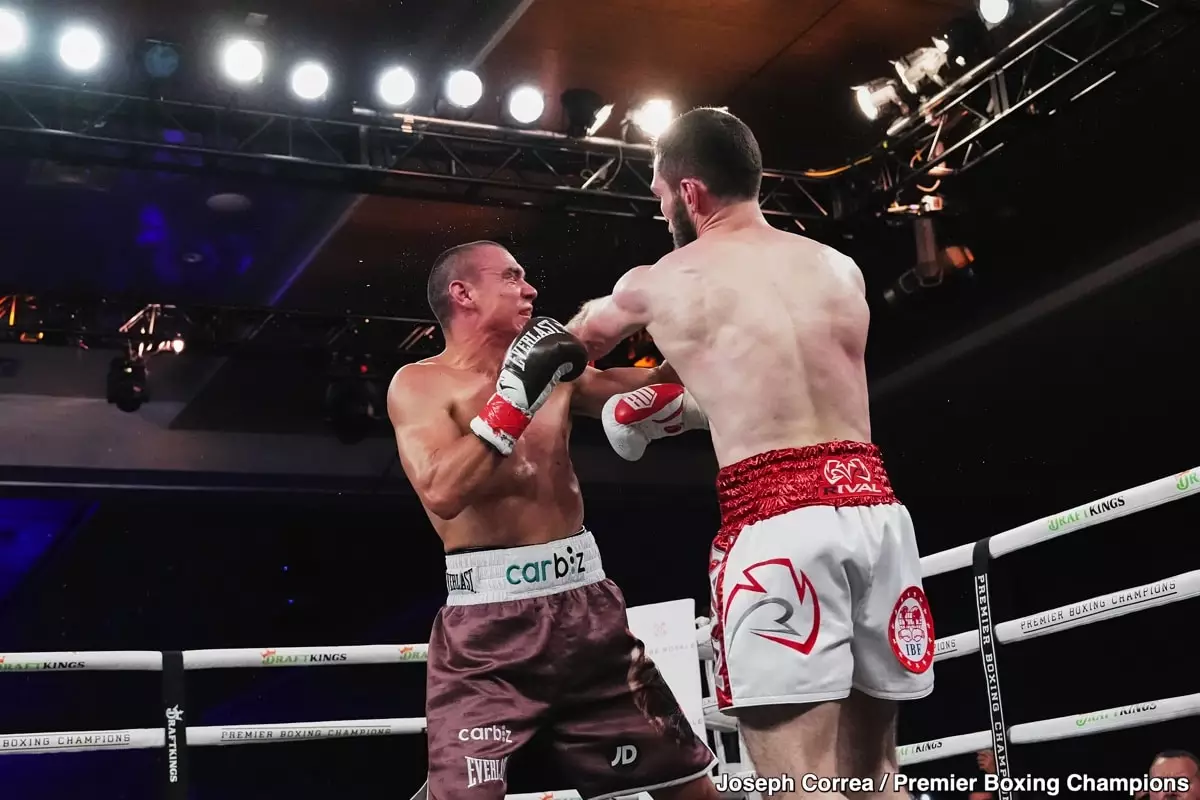In the world of boxing, each fight can be characterized by the unique styles and traits of its challengers. Terence Crawford, the undefeated welterweight champion, finds himself in a swirling discussion regarding potential matchups. Among those named is Bakhram Murtazaliev, an IBF junior middleweight champion with an impressive undefeated record of 23 wins, 17 by knockout. Recently, Steven Nelson, a teammate of Crawford, weighed in, asserting that Murtazaliev brings little unique skill to the ring. Instead, he suggests Murtazaliev’s capabilities are comparable to Crawford’s previous opponents, particularly ex-WBA champion Israil Madrimov, whom Nelson rates as a more formidable adversary.
This dismissive assessment raises eyebrows. If Murtazaliev is seen as merely a “tough” fighter with a “basic style,” what does that imply for the ongoing conversations about Crawford’s legacy? The evaluation invites scrutiny not only of Murtazaliev’s style but of how Crawford would fare against him. Nelson’s contention that Crawford is a “different beast” suggests that the champion’s adaptability and skill set could overpower Murtazaliev’s straightforward approach. However, is this perspective overly simplistic?
Examining the Fight Dynamics
Nelson pointedly claims that Tim Tszyu’s defeat to Murtazaliev stemmed from his inability to “weather the storm,” an assertion that implies the Uzbek fighter has a powerful offensive game. This observation raises critical questions about how Crawford—an experienced pugilist—would handle Murtazaliev’s offensive style. While Crawford may have performed admirably against Madrimov, a fighter with a more unconventional “herky-jerky” style, does that indicate he would adapt equally well against a straightforward slugger like Murtazaliev?
It’s essential to break down these stylistic aspects further. Murtazaliev’s strategy includes a balanced use of both hands and a menacing left hook, divergent from Madrimov, who focused heavily on deceptive feints. This suggests that Crawford’s previous experiences may not prepare him adequately for the raw power and aggression that Murtazaliev brings. The difference in styles can have significant implications, particularly considering the ongoing narrative regarding Crawford’s waning physical prowess as evidenced by his recent performance against Madrimov, where his age appeared to show and his punch efficacy diminished at the 154-pound level.
The Implications for Crawford’s Legacy
Crawford’s reluctance to entertain a matchup with Murtazaliev instigates a conversation about insecurity among champions and potential legacy implications. Fans frequently ponder whether Crawford might be apprehensive about facing Murtazaliev, deeming it a “loss waiting to happen.” Nelson’s advocacy for Crawford, describing him as super competitive and dedicated, might not be enough to assuage these doubts. The narrative that Crawford is avoiding the fight can breed further speculation about the champion’s desire to cement his status in the annals of boxing history.
Moreover, Nelson’s remarks underline a critical aspect of modern boxing discussions: the duel between legacy and fan expectation. As the sport progresses, fighters are increasingly grappling with external pressures—balancing their competitive instincts against the desires of fans and lucrative pay-per-view opportunities. Is Crawford, in chasing his legacy, sidelining fights that would otherwise enhance his historical standing?
The potential matchup between Terence Crawford and Bakhram Murtazaliev evokes more than just stylistic comparisons; it touches on deeper themes of confidence, adaptability, and legacy. While Steven Nelson’s insights offer a valuable perspective, they also open the floor for broader analysis regarding both fighters‘ capabilities. For Crawford, overcoming the narrative of avoidance could entail not only challenging Murtazaliev but also demonstrating that he still possesses the resilience and skill necessary to navigate the rigors of elite boxing.
As the boxing community eagerly anticipates what may come next for Crawford, one thing remains clear: each matchup he considers possesses implications far beyond the ring, impacting not just his career but the historical context of the sport itself. How he handles the unfolding drama surrounding potential fights will ultimately define his path forward—and perhaps even how he secures a place among boxing’s legends.


Napsat komentář